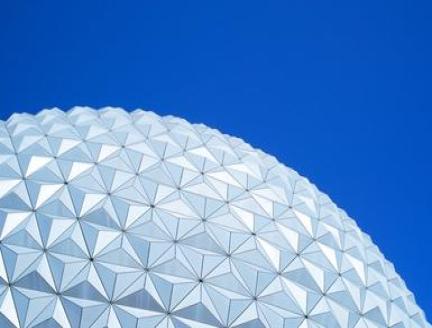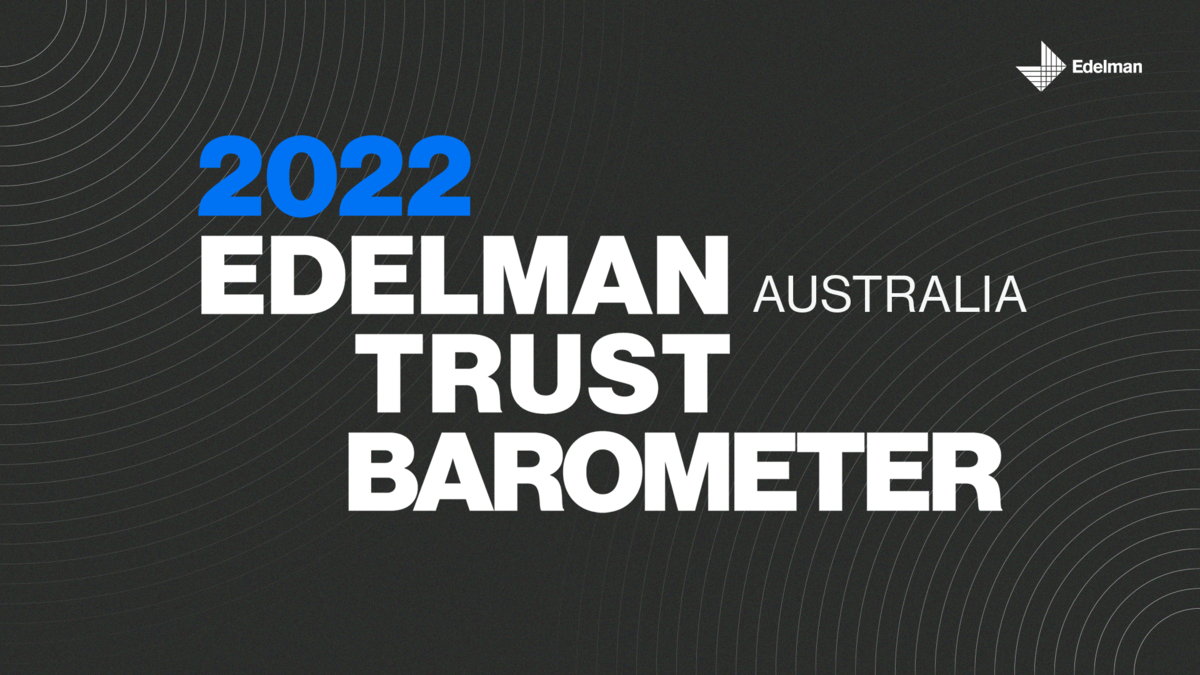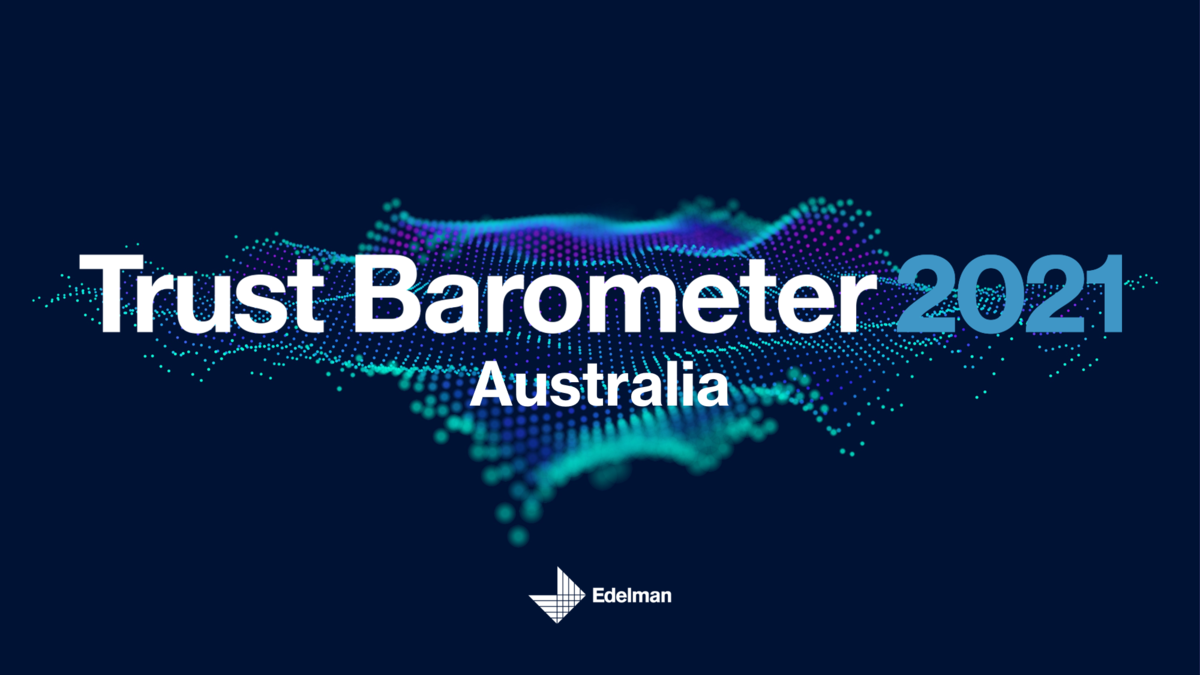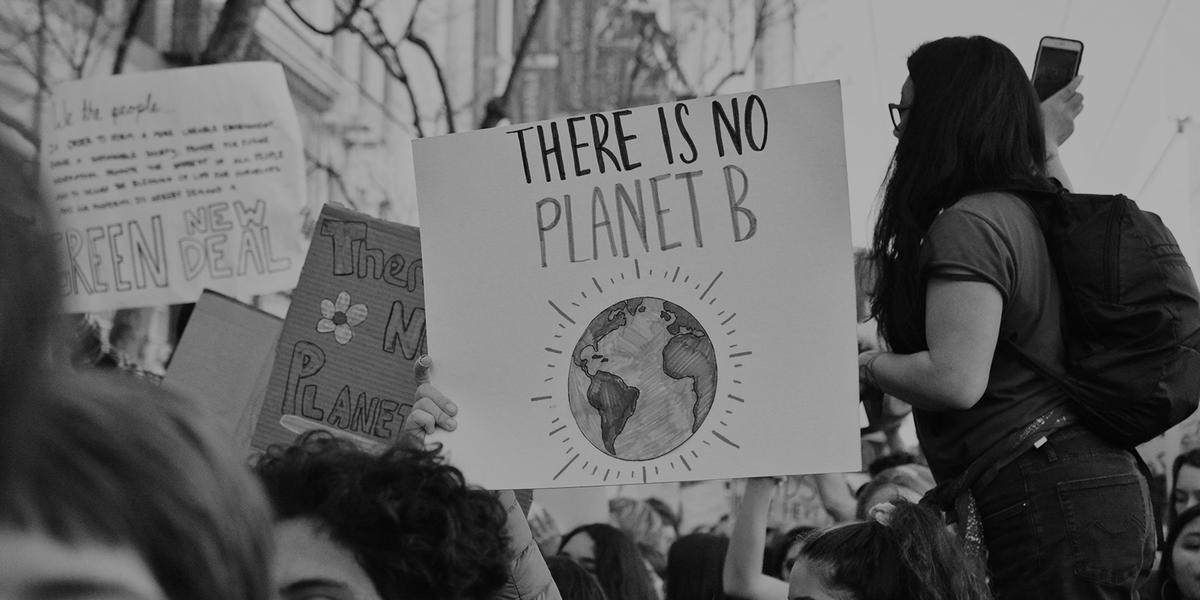AUSTRALIA – February 8, 2023 – Edelman’s 2023 Trust Barometer reveals Australia is on a path to polarisation, driven by a series of macro forces that are weakening the country’s social fabric and creating increasing division in society. This year's report finds that almost half of Australians (45%) say the nation is more divided today, than in the past. The rich and powerful are identified as the major dividing force (72%), followed by hostile foreign governments (69%), journalists (51%), and government leaders (49%).
Polarisation is a central theme globally in this year’s Trust Barometer, with Australia currently straddling the boundary between ‘moderately polarised’ and ‘in danger of severe polarisation’ alongside Canada. The combination of distrust in key societal institutions (namely, government and media), a lack of shared identity, systemic unfairness, heightened societal fears and economic pessimism have led to countries like the U.S., South Africa and Argentina ranking as ‘severely polarised’ -- meaning their citizens feel their country is deeply divided and feel these divisions cannot be overcome. The more people hold these views, the more likely they are to see their countries as divided and the divisions, entrenched.
Further illustrating the concerning polarisation trend, the data reveals the majority of Australians (54%) think the nation’s social fabric has become too weak to serve as a foundation for unity and common purpose. More than half (61%) think the lack of civility and mutual respect today is the worst they have ever seen. Only a quarter of Australians (24%) would help a person in need who strongly disagreed with their own strong view on a societal issue, only 21% would be willing to live in the same neighborhood as them and only 19% would be willing to work alongside them.
“This year’s Barometer reveals that Australia is heading down an alarmingly divisive path, but there is still opportunity to correct course before we end up in severely polarised territory like some of our Western counterparts”, said Tom Robinson, CEO Australia, Edelman. “Distrust in government and media, combined with a lack of shared identity and fears around what the future might hold have led us to this place. As a direct result, business is under heightened pressure to lead the way back to unity and trust.”
Table 1: Are these groups a dividing or unifying force?
|
These groups are… |
…a dividing force in society |
…a unifying force in society |
|
Rich and powerful |
72% |
12% |
|
Hostile foreign governments |
69% |
15% |
|
Journalists |
51% |
24% |
|
Government leaders |
49% |
30% |
|
Business leaders |
36% |
31% |
Government re-enters the realm of ‘distrust’
Government joins media in the realm of ‘distrust’ for the first time since 2020, declining seven points in just the last year to 45%. To mirror this, trust continues to slide for Australia’s institutional leaders, with journalists (36%), CEOs (39%) and government leaders (41%) all declining for a second consecutive year.
Despite the entry of government, media continues to be most distrusted institution in Australia, only trusted by 38% of people (down 5 points). The media are seen as a source of misleading or false information by 48% in Australia, versus 37% of respondents who felt the media are a reliable source of trustworthy information. Continuing the downwards trajectory, the 2023 Trust Barometer confirms that no news source is trusted in Australia, with traditional media only trusted half of Australians (50%, up 2 points vs 2022), owned media by 31% (down 2 pts), and social media by 25% (down 1 pt).
“It’s pretty clear again this year that there is a lack of certainty as to whether key institutions can be trusted to do what’s right. Government has joined the media in distrust territory this year, with Australia ranking amongst the least trusting countries globally when it comes to media alongside Colombia, Spain, the UK, Japan and South Korea. Business has remained neutral, which could be linked to the perception that they can be a reliable source of trustworthy information.”
“The data is clear in calling out the imbalance between trust in business and government, however the Barometer does indicate that if the two entities work together, we are significantly more likely to see constructive action taken to address these divisions,” said Robinson.
There are new fears – and they are bigger than us.
Economic optimism has collapsed globally. Amid the rising cost-of-living, interest rates and energy prices, only 30% of Australians believe they will be better off financially in 5 years, down 13 points from 2021 (43%). In a common unifying thread from across the globe, an enormous 83% of employed Australians are worried about job loss, and 69% of the general population are concerned about inflation. Alongside personal economic anxieties, several geopolitical issues are causing worry amongst Australians - including nuclear war (68%), climate change (61%), energy shortages (59%) and food shortages (54%).
Interestingly, when it comes to the trust comparative between high and low-income earners – this year’s data has shown a reduction of 8 points in the Trust Index of top income earners (down from 62 in 2022 to 54 in 2023). This drop has lessened the gap with low income earners from 18 points in 2022 to 11 points in 2023, with low income earners holding relatively steady at 43 (down 1 point from 2022). Off the back of a year which held many challenges and unrest both at home and abroad, the closing gap in the Trust Index of high and low income earners illustrates that the heightened concerns don’t discriminate.
Navigating a polarised world.
In line with the 2022 Trust Barometer, business remains the only institution seen as both ethical and competent, with ‘my employer’ ranking as more trusted than government, media, business in general, and NGOs in 23 of 28 countries surveyed. In Australia, 75% said they trust their employer to ‘do what is right’ – more than business, government, NGOs and media. Among those who feel their country is polarised, their employer is the only institution of those five that scores as trusted – creating a significant burden of responsibility for business leaders to navigate the way forward in their ability to be a source of truth, restore economic optimism and address world issues.
The expectation for business to take a stand on social issues is putting even greater onus on CEOs to lead the change and be visible in doing so. In Australia, CEOs are expected to publicly take a stand on the treatment of employees (91%), climate change (78%), discrimination (75%), the wealth gap (74%) and immigration (66%). To achieve this, the importance of being a reliable source of trustworthy information cannot be overstated – it was found to be the number one trust builder in the 2022 Trust Barometer and is seen as the top way for business to address societal issues without being seen as political – something that 46% of Australians still believe is possible. In addition, 72% of people expect CEOs to defend facts and expose questionable science used to justify bad social policy.
The core expectations for CEOs hit even closer to home. The majority of Australians say CEOs are obligated to pay a fair wage (89%), pay fair corporate taxes (83%), retrain employees (79%), and ensure their home community is safe and thriving (79%), indicating that the path forward starts with business looking after their own backyard and those within it.
“This report provides a strong lens on how much the world has changed in the last year, with a mix of cautious optimism and realism regarding the challenges that lie ahead in 2023. As we navigate an uncertain economy in Australia, it comes as no surprise that economic anxieties are high. This is coupled with a set of existential worries that have not been present for decades – climate change, and energy and food shortages. The compounding impacts of these fears, accompanied by increasing divisions across society, are tipping us into significant polarisation territory that we must work hard to stave off. The year ahead will require a heavy lift from key institutions to repair the country’s social fabric and restore a sense of unity amongst us,” Robinson said.
For further information on Edelman’s 2023 Australian Trust Barometer read the full report or contact us.





